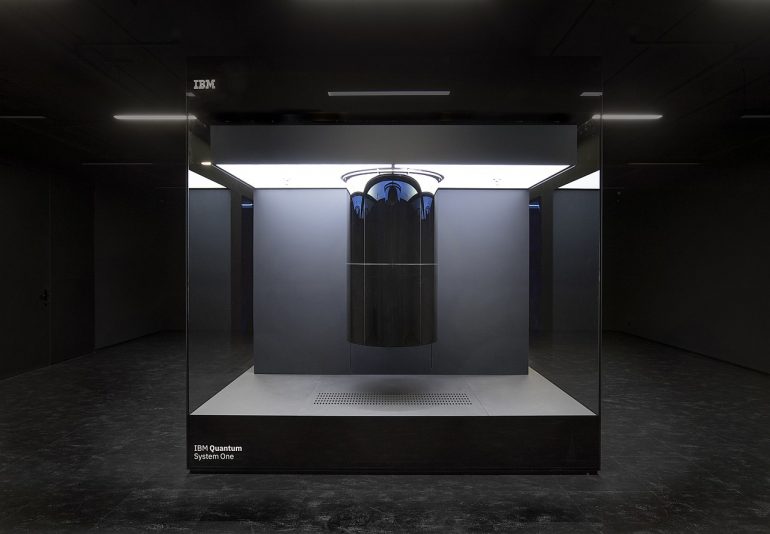Québec’s provincial government has partnered with IBM over five years to launch a new accelerator program. Called the Québec-IBM Discovery Accelerator, the program is meant to establish the province as a leading technology hub in the development of quantum computing, artificial intelligence, semiconductors and high-performance computing.
The creation of the Québec-IBM Discovery Accelerator will apply technologies such as quantum, AI, hybrid cloud, and high-performance computing to challenges across sectors such as energy, life sciences, and sustainability.
As part of the launch, IBM is deploying its first quantum computing system in Canada. It is only the fifth such system in the world, along with systems in Germany, South Korea, Japan, and the US.
The system will be located in the IBM Bromont plant, which is IBM’s largest semiconductor assembly and test facility.
“Quantum science is the future of computing. With our innovation zone, we’re positioning ourselves at the forefront of this future.”
IBM Bromont works toward advancing innovation, especially in silicon photonics packaging. IBM will work with a variety of partners to commercialize the technology.
The partnership will also advance the development of microelectronics components, with the intention of bolstering the North American supply chain for semiconductors at a time when it’s needed more than ever before.
A number of factors have contributed to the current global semiconductor shortage. Among them is the pandemic, which created strong demand for chips to power online learning, virtual healthcare, and remote work, coinciding with a supply bottleneck.
The Harvard Business Review reported in February 2021 that lead times for many semiconductors were one year out at that time.
Some of the specific challenges the accelerator will tackle will include using the quantum system to explore problems, including the modelling of new materials, and integrating classical and quantum computing to delve into various scientific challenges.
In addition to its quantum system in Québec, IBM aims to advance technology education and skills development, as well as provide access to its software models and libraries, including cutting-edge technologies such as the Generative Modeling Toolkit for Science and RoboRXN.
The former is used in materials design development. Rather than going through cycles of invention then testing, researchers simply decide what characteristics they want a new material to have, and AI pulls from massive amounts of data to reverse-engineer molecules that fit the description. In a matter of hours, an AI engine can draft thousands of designs.
IBM RoboRXN for Chemistry is a pioneer project combining AI, automation and cloud to accelerate material discovery.
These technologies serve as part of IBM’s growing Accelerated Discovery portfolio designed to speed up research and expedite solutions in the life sciences including genomics and drug design.
RELATED: D-Wave increases European presence with quantum computer in Germany
Much of the impetus for the new accelerator likely comes out of Québec’s 2021 budget. The province allocated $4 billion over the next five years, specifically noting $2.8 billion to accelerate the transition to a “new economy.” The provincial government’s spending included funding for small-and-medium-sized businesses, accelerators, and innovation initiatives to support economic recovery.
“Québec’s potential to innovate in high technology and be a leader in the economy of the future is immense,” said François Legault, Premier of Québec. “We have world-class universities, creative entrepreneurs and talented workers. Acquiring an IBM quantum computer will pave the way for us to make incredible progress in areas such as artificial intelligence and modelling. Quantum science is the future of computing. With our innovation zone, we’re positioning ourselves at the forefront of this future.”
The announcement comes as welcome news to both the ACET accelerator in Sherbrooke and AI@Centech in Montréal. The two accelerators will partner with the Québec-IBM Discovery Accelerator to share information, and work on technologies.
Richard Chénier, CEO of Centech, told BetaKit that the partnerships will enable Centech’s startups to have better access to facilities, and accelerate product development, particularly in the areas of quantum and microelectronics.
“Québec has some very good strength in quantum and microelectronics and photonics,” he said. “That will help the Province of Québec take some leadership in these fields.”
Centech opened 10 new innovation spaces in Montréal in 2019, and received $625,000 in funding from the Québec government to go towards helping scale the region’s startups. Centech assists tech startups with high growth potential to scale their company through mentoring, access to laboratories and workspaces, and equipment.
Martin Laforest, the director of quantum strategy for the ACET Banque Nationale accelerator in Sherbrooke, told BetaKit that the arrival of IBM’s quantum computer in Bromont fits with the ACET’s strategy in moving forward. He said one of ACET’s priorities is to work closely with the innovation zone Sherbrooke Quantique to use incubation and financial tools to accelerate the creation, the attraction, and the growth of quantum companies in Quebec.
“The quantum ecosystem in Quebec is growing and diversifying at an exponential rate and the arrival of IBM’s quantum computers in the region will play a significant role moving forward,” Laforest said.
“This is another step in the right direction to increase the capacity of our ecosystem to support startups developing quantum technologies,” Olivier Gagnon-Gordillo, the lead, strategy and development at Québec Quantique told BetaKit. “Today’s announcement demonstrates Québec’s desire to maintain and even increase its competitiveness in the development of its innovation ecosystem.”
Québec Quantique uses quantum sciences and technologies as a lever for the economic and social development of Québec to try and position the latter as one of the leaders in the field on the national and international scene.
The Québec-IBM Discovery Accelerator is the fourth such accelerator to be announced in the last 12 months, following similar agreements with Cleveland Clinic, the University of Illinois Urbana-Champaign and the UK’s Science and Technology Facilities Council Hartree Centre.


